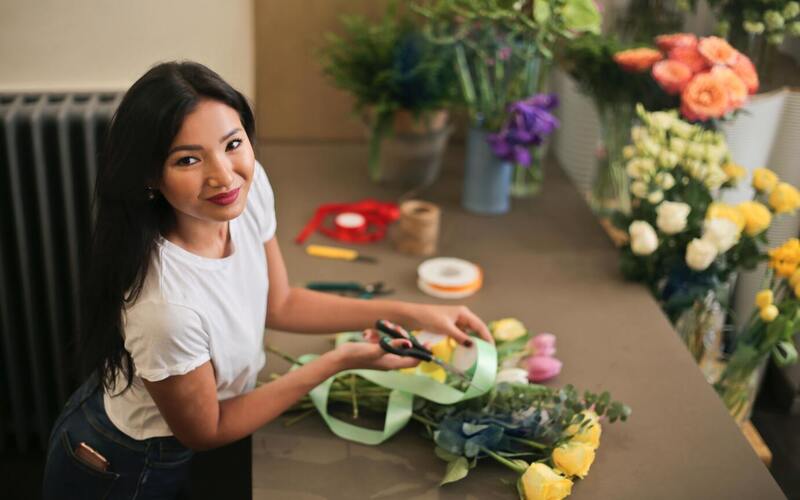Founding and then running a successful flower business may not be the most obvious segue into also operating a hemp company, but such a path is the one chosen by Colorado-based Dutch Heritage Gardens (DHG) and its co-founder, Aaron Van Wingerden.
The Pennsylvania native said he almost fell into growing hemp clones after previous dissatisfaction working with some recreational cannabis facilities where he generally experienced a lack of professionalism perhaps more prevalent in the earlier days of the Colorado cannabis industry.
The company’s move into hemp, under the brand name Royale Botanicals, started in 2017, a short time before the passage of the 2018 U.S. Farm Bill which effectively legalized the plant federally.
While Van Wingerden says he may have somewhat fallen into the industry, the profitable background and proven state of the art technology of his established flower business very much helped prepare him and the company for the new venture.
“It wasn’t as risky for me,” he said. “We were making a profit every year with the flowers and this was more of a diversification – it was a question of let’s build this up as the market requires it.”
Now, the focus is on continually improving the quality of the hemp product on offer, grown in giant outdoor greenhouses on 120 acres of land in a sparsely populated area about halfway between Denver and Colorado Springs, and marketed both all around the U.S. and internationally where countries in Europe, for example, are significant buyers.
Van Wingerden and his team swear by the superior quality of clones over product coming from seed, something the hemp industry in general may still be struggling to grasp.
“The industry needs more education as to why clones are superior to what is coming from seed,” he said.
Building Something From Nothing
Van Wingerden knows all about building a business from scratch.
He and his DHG co-founder wife, Rozalia, ventured from Ohio where they were working in the greenhouse industry, to buy the original land and building in 2006. That had previously been built and owned by Van Wingerden’s father who had then sold the business in 2002 before the subsequent owners went bankrupt two years later, leaving the buildings and site idle and empty.
From such humble beginnings, Dutch Heritage Gardens was born. Van Wingerden would literally load up plants in his van, initially pulling up to 20 King Soopers grocery stores to gauge interest, he said.
The persistence paid off eventually, the main flower buyer for the grocery chain finally calling him into a meeting which resulted in pre-bookings of $800,000 of flowers for the spring of 2007. Today, DHG sells over $6 million worth of flowers to King Soopers, its biggest customer with sales to 153 stores.
That same drive now also characterizes the newer Royale Botanicals hemp business and it is the similar large scale nature of the operations, coupled with the reality of being grown in outdoor greenhouses, that give the company an advantage in terms of cost efficiency over smaller indoor grows.
“We have a free lightbulb with the sun,” Van Wingerden said.
The scale of the business allows the company to compete with national greenhouse companies based in states like California, Ohio, and Florida, he added.
And the margins are generally higher with hemp than they are with the traditional flower business, about 20-25% for hemp compared with approximately 12-15% for the flower operations, Van Wingerden estimates, making the crop an attractive option.
Conservative Opposition to Anything Cannabis?
DHG’s operations lie in a conservative leaning county stretching from the southern suburbs of metropolitan Denver. Might there have been some opposition to the newer hemp operations simply because of possible mistrust of anything cannabis-related?
Apparently not. For example, DHG holds twice annual plant sales where people can buy directly from the company and the events are hugely popular, attracting up to 15,000 people typically each time. The reaction from attendees finding out about the company’s expansion into hemp was overwhelmingly positive, Van Wingerden said.
“People were all saying how great it was we were now going into the hemp and CBD business; they were glad to see a reputable company being involved,” he said.
Van Wingerden says he may eventually look at marijuana operations if possible locally and believes that people would overwhelmingly accept that too. Currently, such commercial grows of marijuana are not permitted locally as individual counties and municipalities have the right to prohibit such activity even in a state where it is otherwise legal.
“There may be some demographics who would be against that, there always will be, but marijuana is here to stay and that snowball is halfway down the mountain and will be hard to stop,” he said.
Hemp Focus to Continue
For now, while the CBD market may have softened overall, Van Wingerden remains convinced there is still a huge untapped market for such hemp-related product, mainly because people just generally don’t take enough of it.
“When you take ten milligrams, it’s not doing a thing for you,” he said. “I think we should be looking at at least a 50 mg dose and as high as 300.”
He himself takes larger doses than most both to alleviate his own back pain and to “sleep like a baby,” as he puts it.
While the industry needs more education as to the benefits of hemp clones over seed, consumers still have a lot to learn about how hemp and CBD can benefit them too. Royale Botanicals intends to help them while maintaining and improving upon the production of high quality material.
Author
-
Nick is an award-winning journalist with several years experience working in a variety of media including digital and print. Originally from the UK, Nick worked as reporter in the London newsroom of Bloomberg for three years before moving to the US where he has lived for the past 18 years. He has covered finance in the cannabis industry since January 2019 for Marijuana Business Daily.






